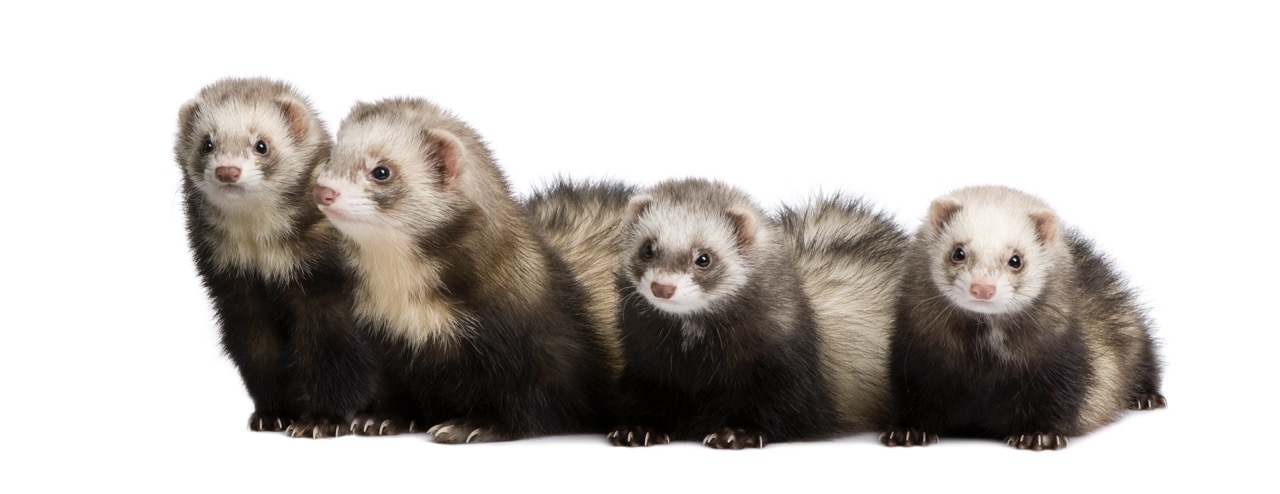As the summer heat creeps in, pet owners face the challenge of ensuring their furry companions remain comfortable and safe. Ferrets, in particular, are sensitive to temperature fluctuations, making it essential for their guardians to understand their unique needs during the hotter months. This article will guide you through the aspects of keeping your ferret cool, from recognizing their temperature regulation mechanisms to creating a safe and comfortable environment both indoors and outdoors.
Understanding Your Ferret’s Temperature Regulation Needs
Ferrets, like many small mammals, have a higher metabolic rate than larger animals, making them particularly vulnerable to temperature extremes. Their normal body temperature ranges between 100°F and 104°F (37.8°C to 40°C), and they do not tolerate heat well. Unlike dogs and cats, ferrets do not have sweat glands across their bodies; they can only sweat through their paw pads. This means that as external temperatures rise, ferrets can quickly become overheated if proper precautions are not taken.
Recognizing the physiological limitations of ferrets is crucial in understanding how to keep them comfortable during summer. Their fur provides insulation, which can exacerbate the effects of heat. Consequently, ferrets may struggle to regulate their body temperature when conditions become too warm. Observing your ferret’s behavior can also provide clues about their comfort level; increased lethargy, excessive panting, or seeking cool surfaces are all signs that they may be feeling uncomfortably warm.
Moreover, individual ferrets may have varying tolerances for heat based on their age, health status, and breed. Older ferrets or those with pre-existing health conditions may be even more susceptible to heat stress. Therefore, it’s vital for ferret owners to be vigilant and proactive in monitoring their pets’ comfort levels, particularly during extreme weather conditions.
Creating a Comfortable Indoor Environment for Ferrets
To ensure your ferret remains cool indoors, maintaining a stable and comfortable environment is essential. Air conditioning is one of the most effective ways to regulate indoor temperatures. Keeping the thermostat set between 68°F and 75°F (20°C to 24°C) will help ensure your ferret remains in a safe temperature range. If air conditioning is unavailable, fans can be utilized in conjunction with open windows to create cross-ventilation, allowing cooler air to circulate.
Creating shaded areas within your ferret’s living space can also help enhance their comfort. Position their housing away from direct sunlight, and use lightweight blankets or curtains to block heat from entering. Additionally, providing cool surfaces, such as tiles or marble, for your ferret to lie on can help them regulate their body temperature more effectively. Ensure that their water supply is always fresh and cool, as hydration is critical for maintaining their body temperature.
Regularly monitoring humidity levels is equally important, as high humidity can make it more difficult for ferrets to dissipate heat. Using dehumidifiers can help lower indoor humidity, which in turn creates a more comfortable atmosphere for your pet. By taking these steps, you can create a safe haven for your ferret to enjoy during the sweltering summer months.
Safe Outdoor Practices for Ferrets During Hot Weather
While outdoor play can be enjoyable for ferrets, it’s essential to take precautions during hot weather. Ideally, ferrets should be kept indoors during the hottest parts of the day—typically between 10 a.m. and 4 p.m.—to avoid exposure to extreme heat. If you do take your ferret outside, limit their time outdoors to short intervals, ensuring they have access to shaded areas and fresh water at all times.
When engaging in outdoor play, consider using a secure, shaded area for your ferret’s activities. Avoid direct sunlight, as the heat can quickly escalate to dangerous levels. Providing a portable shelter or a small tent can create a cool space for your ferret to retreat to when they need a break from the heat. Additionally, be cautious of hot pavements or surfaces that can burn their sensitive paws.
Always monitor your ferret for signs of distress while outdoors. If you notice any changes in behavior, such as excessive panting or lethargy, it’s crucial to bring them back inside immediately. Prioritizing safety and comfort should always be at the forefront of outdoor activities with your ferret during the summer months.
Recognizing Signs of Overheating in Your Ferret
Being able to identify the signs of overheating in your ferret can be lifesaving. Common symptoms include excessive panting, drooling, and restlessness. If you notice your ferret lying flat on their belly with their limbs stretched out, it could indicate they are trying to cool themselves down, which is a sign they may be overheating. Additionally, if your ferret becomes unresponsive or begins to exhibit a rapid heart rate, immediate action is required.
As the situation escalates, you may observe more severe symptoms such as vomiting or loss of consciousness. If you suspect your ferret is experiencing heatstroke, take immediate steps to cool them down. Move them to a cooler environment, provide fresh water, and gently wet their fur with cool—not cold—water to help lower their body temperature. It’s crucial to avoid using ice or very cold water, as this can cause shock.
Recognizing and addressing overheating promptly can prevent serious health complications. Regularly check on your ferret during hot weather, and don’t hesitate to consult a veterinarian if you have any concerns about their well-being. Prevention is always better than cure, and being proactive can help ensure your ferret’s safety during the summer months.
Keeping your ferret cool during the summer months is essential for their health and well-being. By understanding their temperature regulation needs, providing a comfortable indoor environment, practicing safe outdoor activities, and recognizing the signs of overheating, you can help your furry friend enjoy the summer without the risk of heat-related complications. As a responsible pet owner, your vigilance and proactive measures will ensure that your ferret remains happy and healthy even in the heat.










